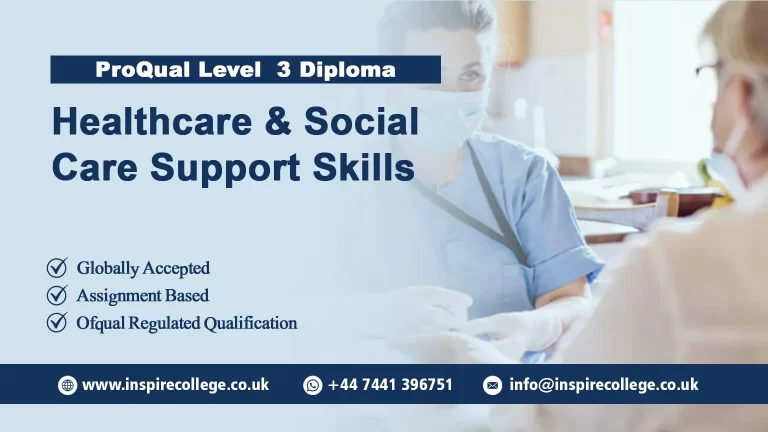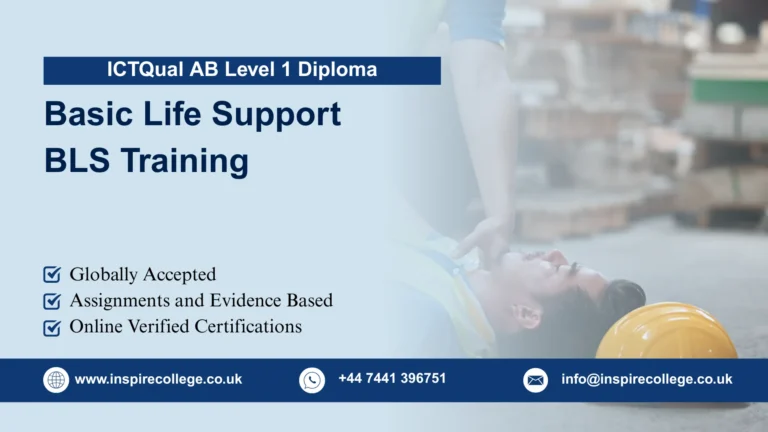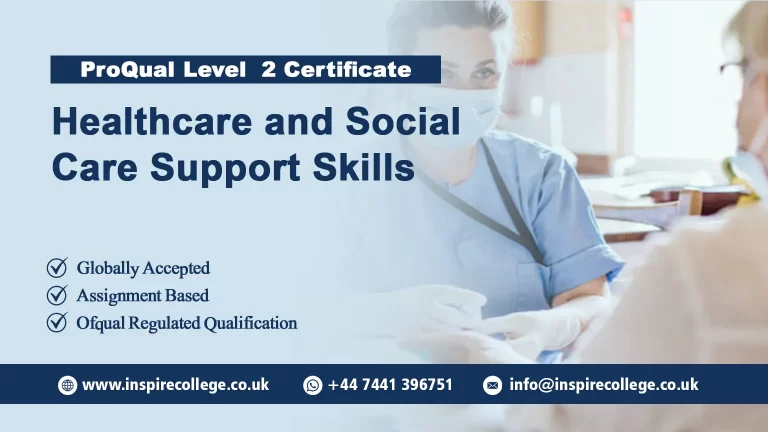ProQual Level 5 Diploma in Advanced Healthcare and Social Care Support Skills
Master Social & Healthcare Skills – ProQual L5
Awarding Body : ProQual
Level: 05
Credits: 37
Duration: 3 to 6 Months
Expert Training for Advanced Care Professionals
The ProQual Level 5 Diploma in Advanced Healthcare and Social Care Support Skills is an Ofqual-regulated qualification that is specifically designed for individuals in leadership or managerial roles within the healthcare and social care sectors. This advanced diploma provides learners with the knowledge, skills, and practical experience required to manage and lead in complex healthcare settings. As a globally recognised certification, it enables professionals to further develop their expertise and take on more significant responsibilities in their respective organisations. With a focus on both practical and theoretical knowledge, this qualification ensures that learners are prepared to make critical decisions and improve care outcomes at a higher level.
The ProQual Level 5 Diploma in Advanced Healthcare and Social Care Support Skills is an in-depth qualification that offers professionals a chance to enhance their skills and knowledge in healthcare management. This Ofqual-regulated qualification is ideal for individuals already working in healthcare or social care settings who wish to take the next step in their career, particularly into management or senior leadership positions. The diploma consists of various modules focusing on advanced topics, including leadership, managing care services, promoting quality care, and navigating complex healthcare legislation. With a focus on assignments rather than exams, learners can manage their studies flexibly, fitting their education around their professional roles.
The ProQual Level 5 Diploma in Advanced Healthcare and Social Care Support Skills is a vital qualification for professionals aiming to excel in leadership positions within the healthcare and social care sectors. This Ofqual-regulated diploma offers a pathway to advanced roles, equipping learners with the necessary skills to lead teams, manage operations, and ensure high-quality care outcomes. Whether advancing within an existing career or transitioning to a leadership role, this qualification provides the expertise needed to succeed in the ever-evolving healthcare landscape.
Upon successful completion of the ProQual Level 5 Diploma in Advanced Healthcare and Social Care Support Skills, learners will have the skills and knowledge necessary for further career progression within the healthcare sector. Graduates may choose to pursue additional qualifications such as a Level 7 qualification in Strategic Management or Leadership for Health and Social Care. They may also move into high-level managerial roles such as Operations Manager, Director of Care Services, or Clinical Lead. Furthermore, this qualification opens doors to opportunities in a variety of settings, including NHS trusts, private healthcare organisations, community care services, and social care agencies.
Follow Us
Start Learning Today
Get in Touch
+44 2035 764371
+44 7441 396751
info@inspirecollege.co.uk
www.inspirecollege.co.uk






